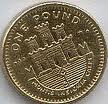Britain
History
n History begins when there is a written record, and writing, like so much else, was brought to Britain by the Romans.
n After the Romans, two waves of immigrants came to Britain. The first were Vikings, and the second were from German tribes: the Angles, Saxons and Jutes. English, the language, is a development from Anglo-Saxon Old English, and is a Germanic language.
Poltics
n The UK is a parliamentary democracy based on a constitutional and hereditary monarchy.
n Her Majesty Queen Elizabeth II is the queen of the UK and is the head of state. Even though she is the head of state, she does not decide policy. Policy is decided by the government, under the direction of the Prime Minister.
n Parliament, where laws are made, has three constituent parts: the House of Commons and the House of Lords and the Queen in Parliament.
Economy
n The UK is a developed country with fifth largest economy in the world.
n London, the capital, is famous as being the largest centre of finance in the world, along with New York City in the United States.
Transport
n Road traffic in the United Kingdom drives on the left hand side of the road and the driver steers from the right hand side of the vehicle.
n The system of rail transport was invented in England, so the United Kingdom has the oldest railway network in the world. It was built mostly during the Victorian era.
Education
n The majority of children attend state schools but a small proportion attend private schools.
n Britain's most well known universities include the University of Cambridge and University of Oxford.
Geography
n Great Britain is an island in Europe. It is the main part of the United Kingdom. It contains England, Scotland and Wales. England is the biggest part of the island. England is in the southeast. Wales is to the west of England. Scotland is to the north of England.
n Britain was called Great Britain originally to distinguish the island from Brittany.
Trabajo hecho por
Christian Hdez Álvarez 3º B








